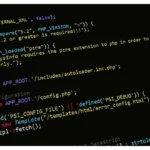Throughout history, each technological leap has stirred a cocktail of excitement and fear. From Gutenberg’s printing press in 1440 to the dawn of the internet in the 1990s, each innovation has been met with trepidation about its potential downsides. Artificial Intelligence (AI) is no different. Critics warn of job losses privacy invasions, and new opportunities for fraud. While these concerns are valid and must be addressed, it’s crucial to acknowledge the incredible opportunity AI presents for global transformation—enhancing productivity, creating new industries, and changing established sectors like manufacturing and medicine. The key is to embrace AI not as a threat but as a tool that, like past innovations, can ultimately enrich society and our way of life.
History provides valuable lessons about technological change. The printing press, invented in the 15th century, faced significant opposition, with fears it would lead to societal chaos by spreading unregulated ideas and challenging established norms. Critics, particularly those in positions of power, worried about the loss of control over knowledge. However, instead of causing chaos, the printing press triggered a revolution in knowledge, fuelling movements like the Renaissance and laying the groundwork for modern science. It was disruptive, but it also drove progress.
Similarly, the invention of the steam train in the early 19th century caused a stir. Some feared that travelling at high speeds—over 30 miles per hour—would harm the human mind, with warnings that passengers might suffer from “railway madness” due to the speed. Yet, far from driving people mad, the railway opened up unprecedented opportunities for commerce, communication, and social mobility. It transformed society in ways that were unimaginable at the time.
Fast forward to the internet’s emergence in the 1990s, a time marked by both optimism and anxiety. Concerns about privacy, cybercrime, and social isolation were widespread. While some of these fears were justified, the internet revolutionised communication, education, and business, connecting people globally and creating entirely new industries. As a tangible example, how much harder would it have been for many to endure the Pandemic without the communication afforded by the world wide web?
These examples underscore a crucial point: technological innovations often provoke scepticism, but they also drive substantial positive change. By acknowledging this, we can better appreciate AI’s potential to enhance our world in ways we cannot yet fully predict.
AI is already transforming business, boosting efficiency and creativity while stimulating economic growth. In healthcare, AI is revolutionising diagnostics, helping to analyse medical data more quickly and accurately, supporting—not replacing—doctors. In manufacturing, AI-driven automation enhances precision and safety, creating new job opportunities in fields like robot maintenance and AI system management. This shift mirrors the Industrial Revolution, when fears of job losses eventually gave way to new economic opportunities.
Beyond business, AI promises to improve the global quality of life. In education, AI offers personalised learning, particularly crucial in areas with limited access to quality education. AI also tackles pressing challenges like sustainability, optimising energy use and improving agricultural practices. In mental health, AI-powered tools are providing support to people who may not have access to traditional therapy.
Yet, with such power comes great responsibility. The potential of AI must be harnessed ethically, addressing concerns of bias, privacy, and job displacement. Ensuring diverse data sets for algorithm training and implementing robust data protection regulations are essential. While some tasks will inevitably be automated, history shows that such shifts lead to new roles and opportunities. By investing in education and training, we can equip workers for the jobs of the future, ensuring that AI drives growth rather than disruption.
Any significant change disrupts the status quo, offering new opportunities to those who may not have had access to them before. AI is no exception. Today, undercapitalised operations like charities and small businesses, often limited by time or skills, can use their access to large language models—to extend their capabilities and embrace new challenges in innovative ways.
AI marks a monumental shift in how we live and work. Looking back at the profound impact of technologies like the printing press or the steam train, we can see that AI’s potential for disruption is matched only by its promise for positive change. By embracing AI thoughtfully and responsibly, we can unlock benefits that were unimaginable just a few years ago.
Author: Creativeguru Founder: Marcie Terman
Curious how Creativeguru.ai could help influence your market, build audience or feed your sales funnel? Why not meet the founders for a secret conference that would strike fear into your competitors!












